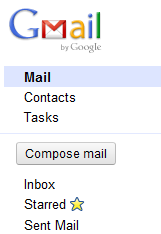Now, this isn’t an entertainment blog, but I must comment on Dia Frampton on the reality television singing competition The Voice on NBC.
I’ve been a fan of Dia for about five years, ever since I randomly caught her band Meg & Dia on a random local TV show one night. I’ve seen them in concert four times, and met and spoken to Dia twice (yes, she is as marvelously awkward in person as she appears on the show).
But that’s neither here nor there. The tagline of this blog entry posits that Dia is a social media success. To fully understand why, let’s consider an abbreviated history of Dia Frampton’s music career.
Dia Frampton’s Musical Career
Raised in Draper, Utah, Dia and her sister Meg Frampton formed the eponymous band Meg & Dia. The arguable tipping point of their rise to fame came after they performed at Warped Tour 2006. The band entered a contest on MySpace to be selected to perform at the MySpace sponsored tent. After a stroke of bad luck, their account was disabled due to some user-submitted malware. But then Tom Anderson (yes, that “Tom”) reached out to the band himself to offer them the gig (to be honest, I gleaned a lot of this information from the Meg & Dia Wikipedia page, but then again to be fair, I wrote and edited a lot of that article).
From then and beyond, Meg & Dia grew their cult following, primarily through Internet promotion. Their on-site forum had thousands of members, who affectionately referred to themselves as “Boardies” and all this fandom eventually led to a record deal with Sire Records and Meg & Dia’s first major label release. The band was eventually dropped from the label, which is the reason why Dia was eligible for The Voice.
 Dia Frampton performing with Meg & Dia at Webster Hall
Dia Frampton performing with Meg & Dia at Webster Hall
Social Media and Reality Television
A little over a year ago, American Idol decided that its contestants would no longer be able to Tweet from their personal Twitter accounts. Many speculated it was because there was a very strong correlation between a contestant’s number of followers/mentions and the likelihood of him or her being voted through to the next round by fans. This was obviously a big deal for a television show that prided itself on nail-biting suspense.
Fast forward to The Voice (which is more often than not referred to on-screen as #TheVoice, another response to the social media age). Much like the current trend with cable news networks, The Voice relied on the social media timeline for user-generated content, going so far as to have a dedicated backstage “social media room.”
I personally have never seen any other television show embrace social media as much as The Voice has. Anyone who’s watched even a single episode can tell you that it seemed as if every commercial break was preceded by a Twitter update; Trending Topics were the holy grail, with no instance of a contestant/performance trending going unnoticed.
At the time of the finale aired, these were the contestant’s Twitter follower counts:
-Beverly McClellan: 31,400
-Vicci Martinez: 43,566
-Javier Colon: 68,344
And lastly was Dia Frampton, who blew all the other contestants out of the water with her 85,905 followers (a significant percentage were from before it was even announced that she would be on the show, another example of Meg & Dia’s loyal following).
So what happened on tonight’s episode? Unfortunately, Dia was the first runner-up. She may not have won, but the trend that American Idol feared a year ago returned to The Voice. The two members with the highest number of Twitter followers were the top 2 vote-getters. I can’t say it was unexpected, but it was still surprising how much a single show could embrace Twitter.
Does it take the surprise out of reality television shows? Probably. But does it even matter? Not necessarily. Social media is all about community building, and you can’t ignore or censor someone’s popularity in this digital age.
Did The Voice do it right? The answer to that one is probably “no” as well, but it’s a good start and perhaps other programs will follow suit. Engaging your audience and making them invested in your programming is almost never a bad thing.

Meeting Dia Frampton at Webster Hall (Nov 2010)
Update: Oops! I didn’t realize that The Voice only aired “Live” on the East Coast and inadvertently ruined it for a friend by Tweeting about it (and this article). But that definitely brings to mind another great point about the power of Trending Topics and communities. The show was able to generate so many Trending Topics from just a fraction of the US population! But again, sorry if I spoiled anything!

 Now, not every Google product launch arrives with such fanfare or contempt. But Google does have a long history of rolling out services, redesigns, algorithms, etc. in extremes and then inevitably scaling back after some much deserved negative feedback.
Now, not every Google product launch arrives with such fanfare or contempt. But Google does have a long history of rolling out services, redesigns, algorithms, etc. in extremes and then inevitably scaling back after some much deserved negative feedback.